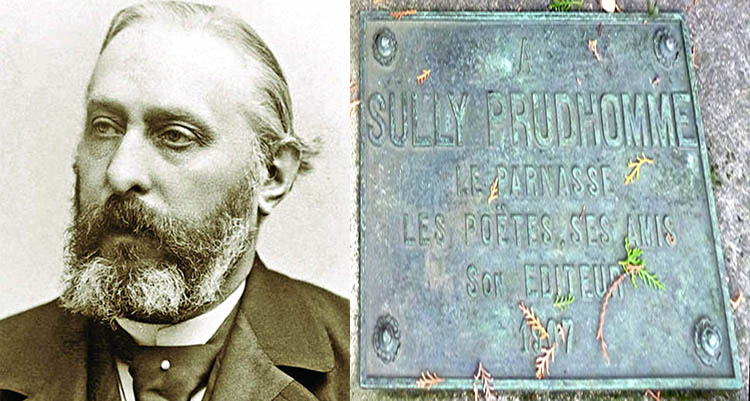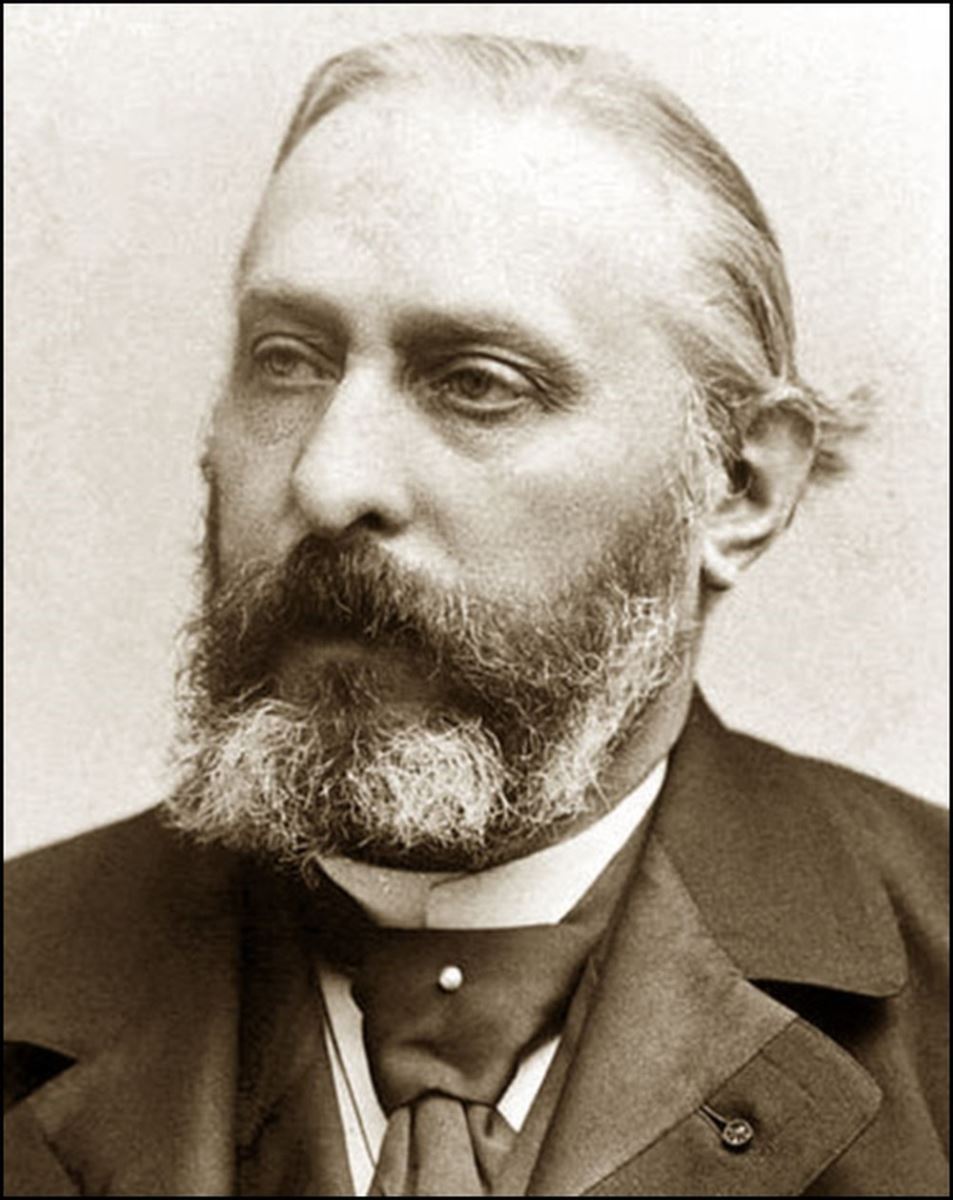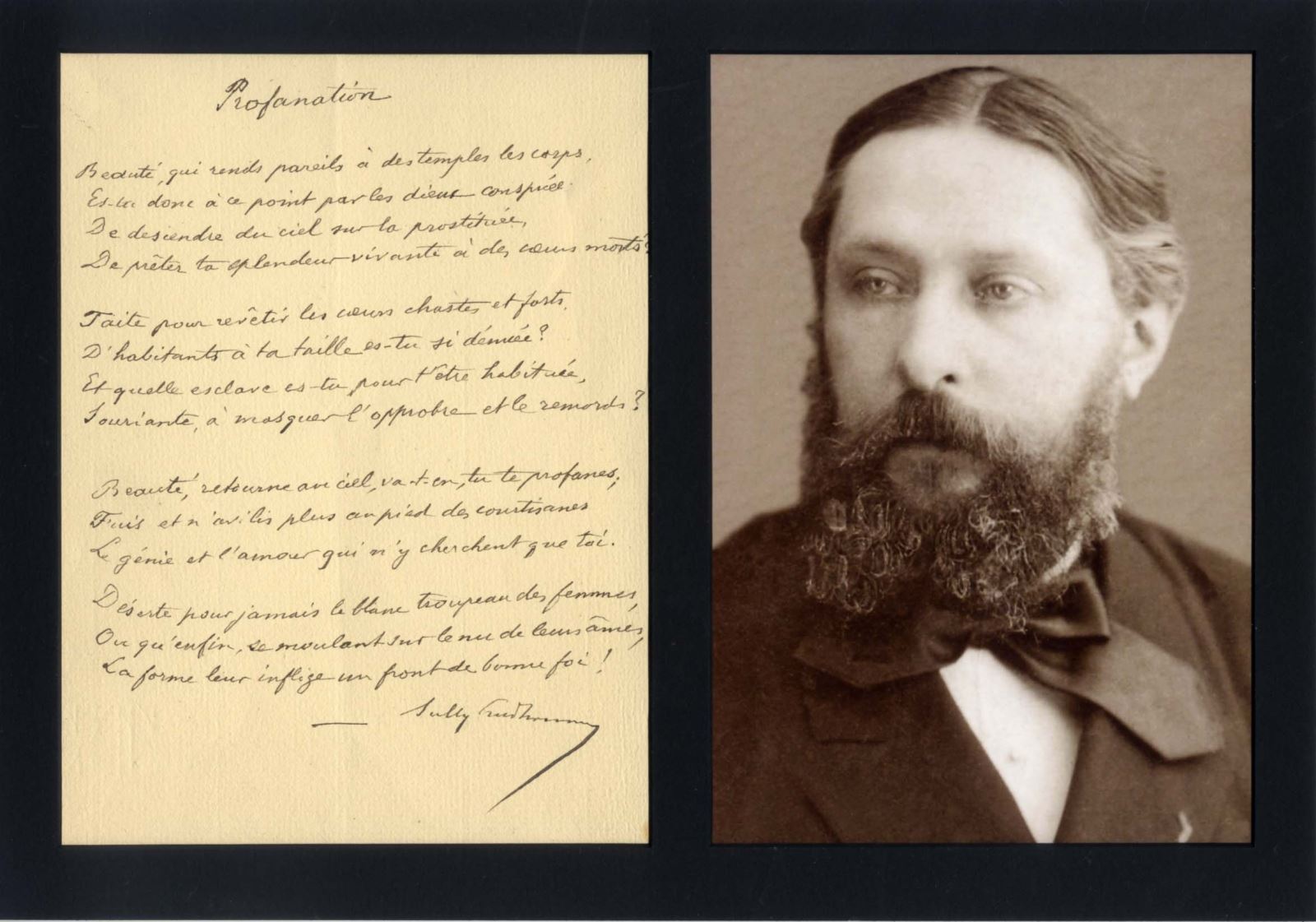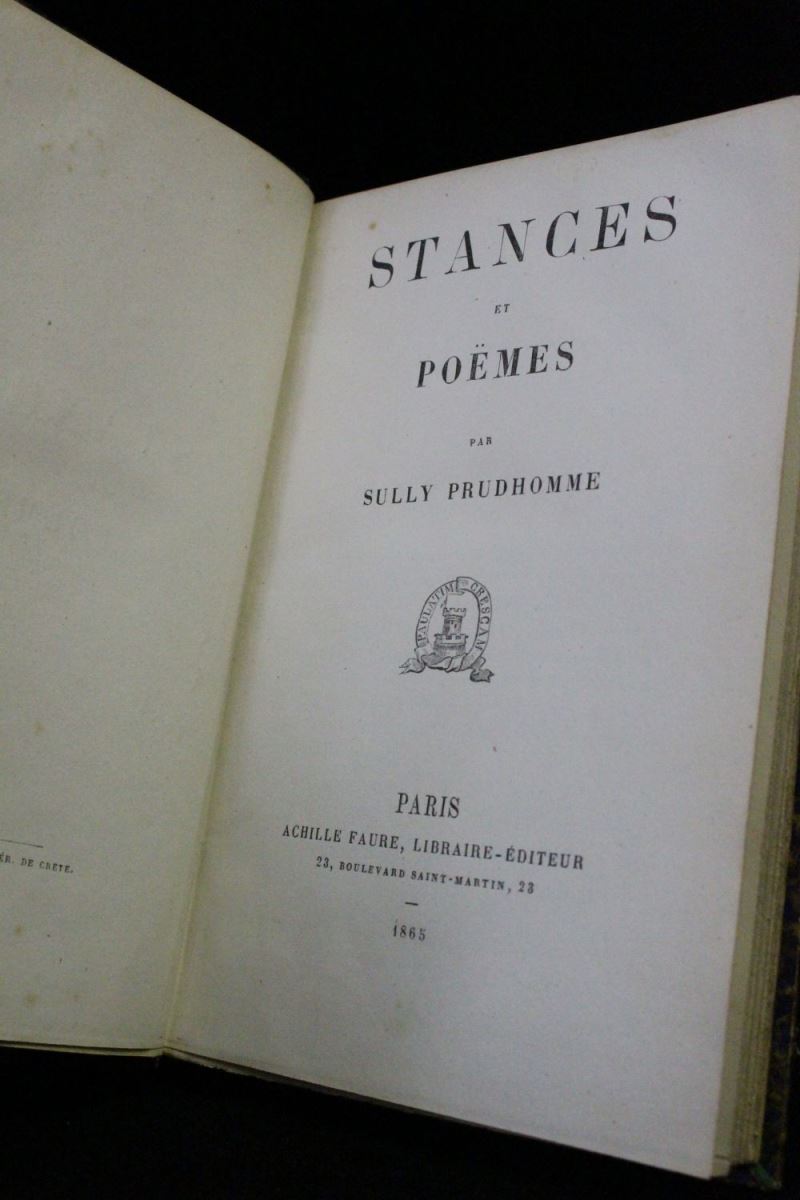Rene Francois Armand Prudhomme (1839-1907) was the son of a French shopkeeper. He studied literature, and after a brief and unsuccessful interlude in industry, he took up law, though without much conviction, and worked in a solicitor’s office.
.jpg)
His first volume, Stances et Poèmes (1865) [Stanzas and Poems], was well reviewed by Sainte-Beuve and established his reputation. Sully Prudhomme combined a Parnassian regard for formal perfection and elegance with philosophic and scientific interests, which are revealed, for instance, in his translation of the first book of Lucretius’ De Rerum Natura (1878-79).

Some of his other poetic works are: Croquis Italiens (1866-68) [Italian Notebook]; Solitudes (1869); Impressions de la guerre (1870) [Impressions of War]; Les Destins (1872) [Destinies]; La Révolte des fleurs (1872) [Revolt of the Flowers ]; La France (1874); Les Vaines Tendresses (1875) [Vain Endearments]; La Justice (1878); and Le Bonheur (1888) [Happiness].

Les Epaves (1908) [Flotsam], published posthumously, was a collection of miscellaneous poems. A collected edition of his writings in five volumes appeared in 1900-01. He also wrote essays and a book on Pascal, La Vraie Religion selon Pascal (1905) [Pascal on true Religion]. Sully Prudhomme was a member of the French Academy from 1881 until his death in 1907.

He was awarded the Nobel Prize 1901 in special recognition of his poetic composition, which gives evidence of lofty idealism, artistic perfection and a rare combination of the qualities of both heart and intellect.

According to en.wikipedia











